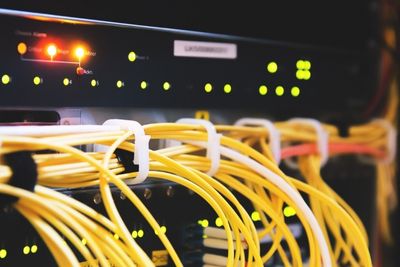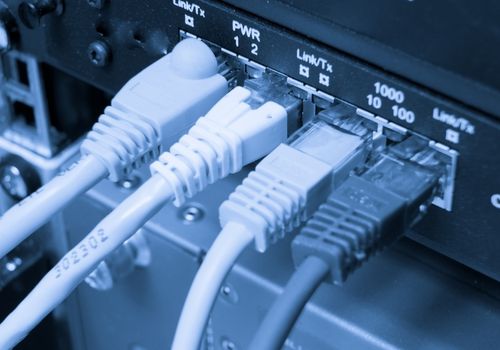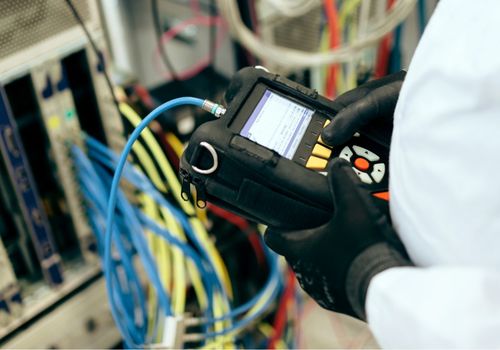
If you find that your ethernet connection is slower than WiFi, it could be due to the ethernet cable you use, issues with your network adapter, viruses, or other software and hardware problems. Fortunately, if you face this, you can usually get it fixed by trying different ethernet cables or another port, updating software, or getting rid of any viruses present.
My cousin enjoys playing video games competitively. He was satisfied with doing this over a wireless connection. However, when he wanted to increase his internet speeds, he decided to switch to a wired connection but experienced slower speeds. He asked me for help, knowing that I have a knack for troubleshooting, and I was able to help him sort it out.
If you've been wondering why your ethernet connection is slower than WiFi, you're in the right place for the answers. Let's get right into what you need to know.
Contents
You know the potential reasons why your WiFi connection might be performing faster than your wired one, but what you want to know is how to get things back to normal.
The fixes below are more than likely to get things working as they should for you again.

The first thing I recommend when facing PC issues is restarting your computer. It doesn't take more than a minute or two and you'll be surprised that it can be an effective fix to the problems that you face.
To restart Windows, do the following:
It's hard to know when one of the ethernet ports on your router is faulty, but it's always worth switching ports if you find that your WiFi connection tends to be faster than ethernet.
This takes a few seconds and could be all you need to do.
If your ethernet cable is defective, it can affect how fast it can transmit data. You'll need to try a replacement cable to see if it works better.
Based on ethernet cabling standards, some are slower than others. You want to use at least a Cat5E cable for your internet connection (not a Cat5, as it is 10 times slower). Ideally, I recommend that you go for at least a Cat6 cable to get the fastest connection speed that your ISP provides.
Network adapters are hardware components of your computer, but they can communicate properly with the software thanks to a driver. Think of the driver as being a translator.
By updating your network drivers, you can keep the network interface card running at it's very best. Updated drivers can also help you get past bugs in older driver versions.
To update drivers in Windows:
It's not only your network card that needs to have its software updated. The same applies to your router, as keeping its firmware on the latest version will typically give you the best performance, which can fix issues if you're dealing with slow internet over ethernet but not a WiFi connection.
Typically, you can access the router configuration and network settings by entering its IP address into your browser.
Here's how to find its IP address. You'll need to be connected to the router's internet for this, whether over a wired or wireless network.

You should always have an antivirus on your computer. You can use Windows Defender, which comes with the OS, but Malwarebytes is a great free alternative.
Regardless of the one you choose, you should try to run a full scan on your computer to see whether it finds anything suspicious.
A VPN, or virtual private network, anonymizes you on the internet and gives you a secure connection by channeling all your data through separate networks. They might even be in another country.
However, doing this can adversely affect your internet speeds, so you might want to turn off your VPN and see whether that helps.
If all else fails, it might be time to reach out to your ISP. It might be an issue on their end, or it could be due to hardware issues with the router, in which case they'll replace it.
An ethernet connection is a direct wired connection from your router to your computer's network adapter.
Since a WiFi connection relies on sending data using waves in the air, your internet speed should normally be faster when you use a direct ethernet connection.
Unfortunately, this isn't always the case, and it can be annoying because most people switch to using an ethernet cable when WiFi is available because they want to take advantage of faster speeds.
There are a few common reasons why you might have to deal with a slow ethernet connection though, and I've given them below.
The culprit behind your slow internet speeds might just be your ethernet cable.
You might not know it, but all ethernet cables are not built equally and your ethernet speed can be limited by the kind of cable that you have.
Here's a quick crash course: these cables are classified using a "Cat" standard. The higher the number that comes after Cat, the faster the ethernet connection that the cable handles.
You can look along the cable jacket for text and you'll be able to see which category standard it is under. If you have a Cat5E cable or higher, this probably isn't the reason your internet speeds are slow.
But hey, what if you already have a Cat6 or Cat8 cable and you're still dealing with ethernet slower than your WiFi?
Well, the cable might still be the culprit, but it might have been damaged at some point along its length. Also, extremely long cables will result in an ethernet connection slower than you probably want.
Your operating system is incredibly complex and sometimes things go wrong with the software. Yep, that's right. A simple bug or glitch can occasionally be the reason why you can't get the maximum speed on your wired connection.

The two pieces of networking hardware most likely to be the cause behind your wired ethernet issues are your internet router and your computer's network card.
When the software - firmware for the router, and driver for the network card - runs into bugs or starts to get outdated, it's likely to affect how well this hardware works and you'll ultimately be dealing with a poor internet connection when using your ethernet adapter.
If you've ever been in the Network Connection settings in Windows, you'll know that there's a lot going on behind the scenes to keep your computer's network infrastructure functional.
When the settings in Windows don't align with what the router or your internet service provider "expects", there can be some level of miscommunication between them. This is another reason why your internet connection might be slower when connected over ethernet ports.
Viruses could be the reason why a once reliable connection has now become difficult to depend on when wired. It could be due to malware.
There are many different kinds of viruses. Some might just drop your network speed, while others could be actively utilizing your bandwidth for their nefarious purposes.
To objectively assess whether your speed on WiFi is slower than over an ethernet connection, you can use an online speed test, of which there are many options online.
They tend to be very easy to use. You can simply type "speed test" into Google and it'll give you a handy one right off the bat. Press "Run Speed Test" to start it.
Alternatively, other popular options include Speedtest (just open it and press "Go") and Fast.com (starts testing immediately).
If you somehow get slower speeds while wired than you do over a wireless network, it might be due to software issues with your operating system, drivers, VPN, or router firmware. It might also be due to faulty hardware, such as your cable or one of the multiple ports you plug it into.
Fortunately, with a Windows computer, there are several things you can try out to fix this. I recommend restarting the PC first, but you can also update network drivers in Device Manager, scan for viruses, or try a new cable.
